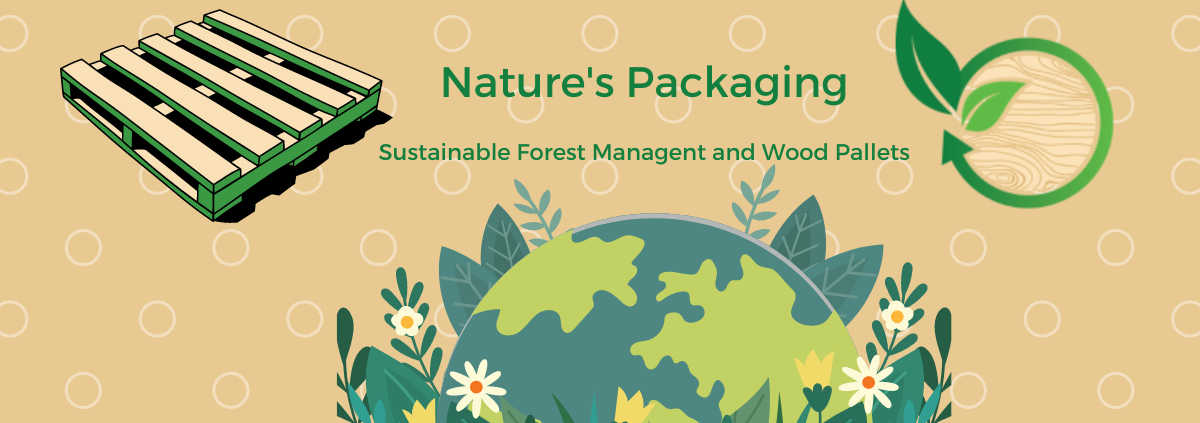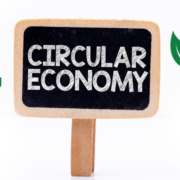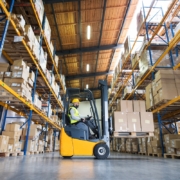Sustainable Forest Management and Wood Pallets
The wooden pallet and container industry has embraced sustainability as both a core practice within the operating processes of the industry, and as a key value add to our customers in helping them achieve their own sustainability goals in their supply chain.
As more and more companies in this industry utilize data to provide insight and tell a story about their commitment to sustainable practices; the knowledge, data, and practices have a trickle-down effect from the largest companies in the industry to the small mom and pop pallet yards that are the backbone of the industry.
As a whole, we realize that the benefits of sustainability go beyond merely integrating into our customer’s goals, data, and marketing. There is real potential to be a leading light in the reduction of emissions and the science of carbon sequestration.
These topics can have real financial consequences for our bottom lines that will have a profound effect on our industry. And rest assured, if it becomes clear that our business processes are fully in line with the economic benefits of carbon capture and carbon credits, then our industry will be transformed by investments from some very large companies.
The industry is now witnessing the effects of attention from investment groups that realized how critical the pallet industry is to the supply chain and have begun consolidating assets to gain an edge.
But let’s take a step away from industry affairs for a moment and focus on another aspect of sustainability and how it can affect our industry. Most of the time, we are focused on the “downstream” effect of our sustainable practices and the value added by them. In this particular Nature’s Packaging post, we want to look “upstream” at sustainable practices in a critical area of the forest and forest products realm that adds value to our industry.
Sustainable forest management has been covered by Nature’s Packaging in previous posts, so we won’t delve into it as it benefits a forest itself. In this NP post, we want to summarize how sustainable forest management benefits the wood pallet industry in particular.
As we move forward globally with initiatives designed to save and manage forest from a more ecological and holistic perspective, the ability to source raw materials will change. With that change will come a change in our core products, the wood pallet and container, as well. As an industry, we must be ready for changes in policy and regulation that will inevitably be a part of that process.
The benefits of sustainable forest management must be weighed against the ability for our industry to do business in a meaningful way and remain profitable.
To that end, let’s review some of the ways sustainable forest management benefits the wood pallet industry:
- Ensures a steady supply of wood: Sustainable forest management practices aim to maintain or increase the health and productivity of forest ecosystems over the long term. This helps to ensure that there is a continuous supply of wood available for the wood pallet industry.
- Reduces costs: Sustainably managed forests are typically more efficient and cost-effective to log than forests that are not managed sustainably. For example, selective logging practices, which involve removing only certain trees from a forest rather than clear-cutting the entire area, can help to reduce costs and minimize waste.
- Enhances the reputation of the industry: Sustainably managed forests are generally seen as more environmentally friendly, and the wood pallet industry can benefit from this positive reputation. Using sustainably sourced wood can help to attract customers who are concerned about the environmental impact of their purchasing decisions.
- Protects against future risks: Climate change and other environmental pressures pose significant risks to the wood pallet industry. Sustainably managed forests are more resilient to these risks, as they are better able to adapt to changing conditions and continue to provide a reliable source of wood.
These are succinct points that offer a broad perspective to you as a reader. Essentially, they address supply, costs, marketing, and the environment as it relates to the pallet industry. It is your challenge to contemplate the implications of each of these points and decide where (and when) your company, and the industry, need to focus.
Sustainable forest management offers a range of benefits for the wood pallet industry, how will you add those benefits and create value for your business and the industry?












